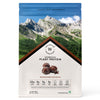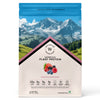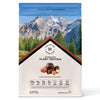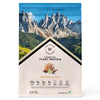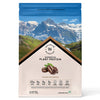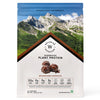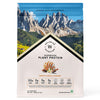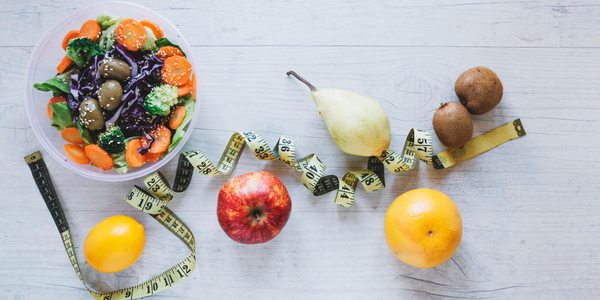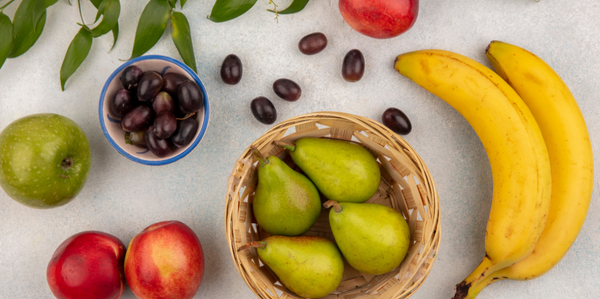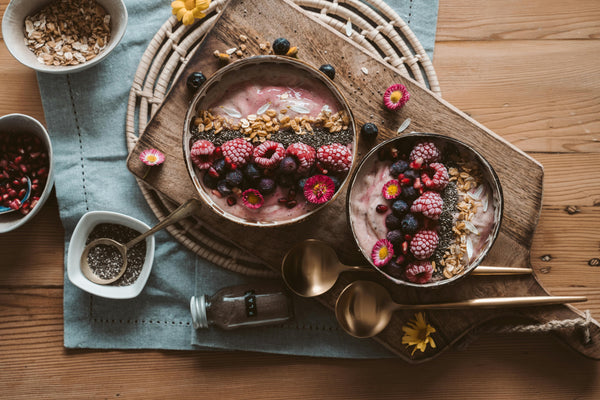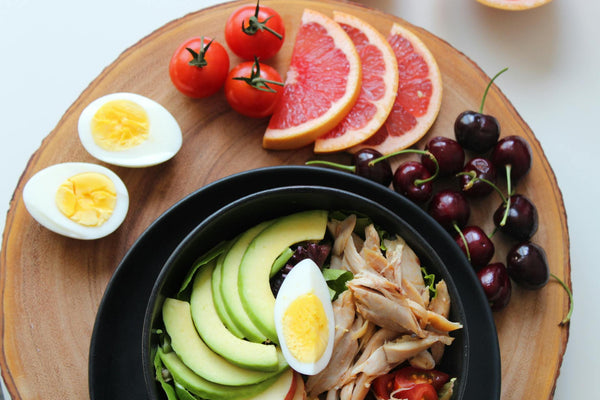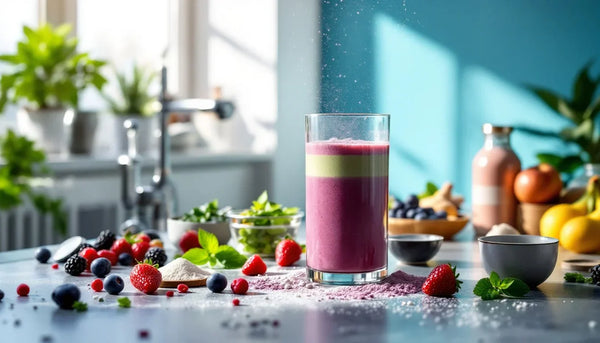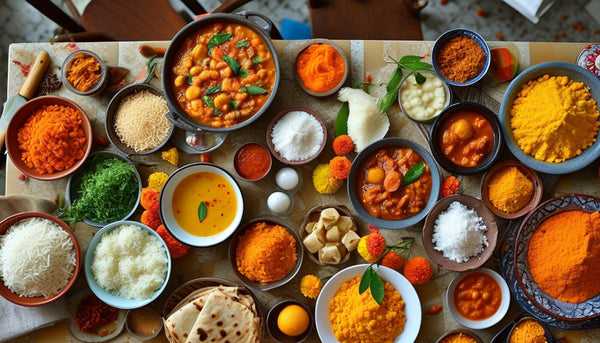Getting enough protein for vegetarians is no longer the uphill battle it once was. With more awareness around plant-based nutrition and access to a diverse range of whole foods, vegetarians today can enjoy a well-rounded, protein-rich diet without relying on meat or dairy.
But here’s the catch: not all protein foods in vegetarian diet are created equal. While many plant-based foods offer some amount of protein, only a few qualify as complete protein foods, meaning they contain all nine essential amino acids that our body cannot produce on its own.
This guide breaks down everything you need to know, from understanding what makes a protein “complete” to discovering the top sources of protein for vegetarians, how to combine foods for optimal results, and when to consider a supplement.
Why Do Vegetarians Need Complete Proteins?
Protein is essential for muscle repair, enzyme production, hormone regulation, and a strong immune system. For vegetarians, it’s crucial to find good sources of protein that not only meet daily intake requirements but also provide a complete amino acid profile.
Unlike animal products, many plant foods lack one or more of these essential amino acids. That’s why learning how to identify and combine protein foods for vegetarians is key to building a balanced, nourishing diet.
What Are Complete Proteins and Why Do They Matter?
Essential vs. Non-Essential Amino Acids
Out of the 20 amino acids our body uses, nine are “essential”—which means we must get them from food. A complete protein food provides all nine in adequate proportions. This is particularly important for vegetarians who might otherwise consume only “incomplete” proteins.
Most foods that contain protein for vegetarians, like beans, grains, and nuts, are rich in some amino acids but low in others. Complete plant-based proteins, however, offer a full spectrum of essential amino acids in one go. Some excellent sources of protein for vegetarians meet this standard naturally and should be prioritized in your diet.
Top 7 Complete Protein Foods for Vegetarians
The general recommendation is about 0.8–1 gram of protein per kg of body weight for adults. This can increase for those who are physically active, pregnant, or trying to build muscle. That’s why a conscious effort to include multiple good sources of protein for vegetarians is so important.
Some of the most effective and accessible protein foods in a vegetarian diet that are both, complete and nutrient-dense include:
1. Quinoa: The Ancient Super Grain

Quinoa is often hailed as one of the best complete protein foods for vegetarians. This seed (often treated like a grain) contains all essential amino acids and provides about 8 grams of protein per cooked cup. It's also rich in magnesium, iron, and fiber.
How to enjoy it: Use quinoa as a base for salads, warm bowls, or even breakfast porridge. Its subtle nutty flavor makes it incredibly versatile.
2. Hemp Seeds: Omega-Rich Protein Source

Tiny but powerful, hemp seeds provide around 10 grams of protein in just 3 tablespoons. They are one of the rare plant-based complete protein foods and are also packed with omega-3 and omega-6 fatty acids, making them excellent for heart and brain health.
How to enjoy them: Sprinkle over smoothie bowls, blend into protein bars, or stir into your morning oatmeal.
3. Chia Seeds: Fiber + Protein Combo

Chia seeds deliver about 4.7 grams of protein per ounce and contain a high amount of fiber, calcium, and antioxidants. Though slightly lower in lysine, they’re still considered a near-complete protein source.
How to enjoy them: Soak chia seeds overnight to make pudding, add them to smoothies, or use them as an egg substitute in baking.
4. Edamame: Whole Soy Goodness

Edamame, or young soybeans, are one of the most delicious and accessible sources of protein for vegetarians. Just one cup packs 17 grams of complete protein, along with folate, fiber, and vitamin K.
How to enjoy them: Steam them as a snack, toss them into stir-fries, or add to grain bowls and salads.
5. Lentils: Budget-Friendly & Filling

Lentils are among the most beloved protein foods for vegetarians. While technically not complete on their own, when paired with grains like rice or whole wheat, they offer a full amino acid profile. One cup of cooked lentils offers a generous 18 grams of protein.
How to enjoy them: Cook them into dals, soups, khichdi, or form into lentil patties for a satisfying burger alternative.
6. Tofu: The Versatile Protein Staple

Made from soybeans, tofu is a complete protein that offers about 10 grams per half cup. It's also rich in calcium and iron, making it a well-rounded source of protein for vegetarians who are looking for both versatility and nutrition.
How to enjoy it: Grill, bake, or sauté tofu with your favorite marinades, or blend it into smoothies and desserts for a creamy texture.
7. Spirulina: Nutrient-Dense Algae

Spirulina is a blue-green algae that contains about 8 grams of protein per two tablespoons. It’s a potent plant-based source of protein, packed with B vitamins, iron, and antioxidants.
Don’t love the taste? A great alternative is Wellbeing Nutrition’s Vegan Protein. This clean protein offers high-quality, complete plant protein combined with gut-friendly probiotics, ideal for those who want a delicious and convenient way to boost their intake of protein for vegetarians.
Smart Food Combinations to Complete Your Protein Profile
If you aren’t getting complete protein from one food, don’t worry—combining the right ones throughout the day can help. Here are a few time-tested pairings of food that contain protein for vegetarians:
Rice + Lentils (Dal-Chawal): A staple Indian meal that checks all the boxes.
Peanut Butter + Whole Grain Bread: Great for breakfast or snacks.
Hummus + Whole Wheat Pita: Chickpeas and grains come together for a balanced amino acid profile.
These combinations reflect traditional eating patterns and naturally offer all essential amino acids when consumed within the same day.
Tips to Maximize Protein Absorption
1. Pair with Vitamin C and Iron
Boost iron absorption from plant sources by eating foods rich in vitamin C—like lemon, tomatoes, or bell peppers—along with lentils or tofu.
2. Spread Protein Intake Throughout the Day
Instead of overloading one meal, aim to include a little protein in every meal and snack. This supports muscle recovery and keeps energy levels steady.
Should Vegetarians Consider Protein Supplements?
For many, getting enough protein from whole foods alone is achievable. But busy schedules, higher activity levels, or dietary restrictions may call for added support.
When to Supplement
- You’re constantly on the go and skipping meals
- You need a post-workout recovery option
- You’re not able to meet protein goals through food alone
What to Look For
Choose a plant-based protein powder that is made from clean, whole-food ingredients and free from artificial sweeteners or additives. Ideally, look for one that also supports digestion.
Wellbeing Nutrition’s Vegan Protein is a great example, it offers a blend of pea and brown rice protein, contains probiotics for gut health, and comes in delicious flavors. It’s a smart way to support your protein intake in a vegetarian diet, especially if you’re short on time.
Final Thoughts
Meeting your protein needs as a vegetarian is not only possible, it can be deeply satisfying and nutritionally complete. By choosing a mix of complete protein foods, strategically combining others, and supplementing when needed, you can ensure your body gets all it needs to thrive.
From quinoa and tofu to spirulina and lentils, there are plenty of protein foods in a vegetarian diet that make it easy to stay strong, energized, and well-nourished. Explore new ingredients, keep your meals diverse, and enjoy the powerful benefits of a plant-powered diet.
FAQs
1. What are complete proteins and why do vegetarians need them?
Complete proteins are foods that contain all nine essential amino acids in the right proportions. Vegetarians need them to support muscle repair, immune health, and overall body function, especially since many plant proteins are incomplete on their own.
2. Can vegetarians get enough protein from food alone?
Yes, vegetarians can meet their protein needs through a variety of whole foods like lentils, tofu, quinoa, and edamame, especially when these are combined strategically across meals.
3. What are the best vegetarian sources of protein?
Top vegetarian sources of protein include quinoa, lentils, tofu, edamame, hemp seeds, chia seeds, and spirulina. These offer a strong amino acid profile and support overall health.
4. Is tofu a complete protein?
Yes, tofu is made from soybeans and is a complete protein, meaning it contains all essential amino acids. It’s also rich in calcium and iron, making it a great addition to vegetarian diets.
5. Do I need a protein supplement as a vegetarian?
Not always, but if you have a busy lifestyle, higher protein needs, or find it hard to meet daily intake through food, a clean plant-based protein supplement can be beneficial.
6. How can I combine foods to make a complete protein?
Pairing foods like rice with lentils, peanut butter with whole grain bread, or hummus with pita helps form a complete amino acid profile, even if each food isn't complete on its own.
7. Are there any side effects of plant-based protein supplements?
Most plant-based protein supplements are safe when made from clean ingredients, but some people may experience mild bloating or digestive discomfort, especially with low-quality formulas. Look for gut-friendly options with probiotics to avoid this.








